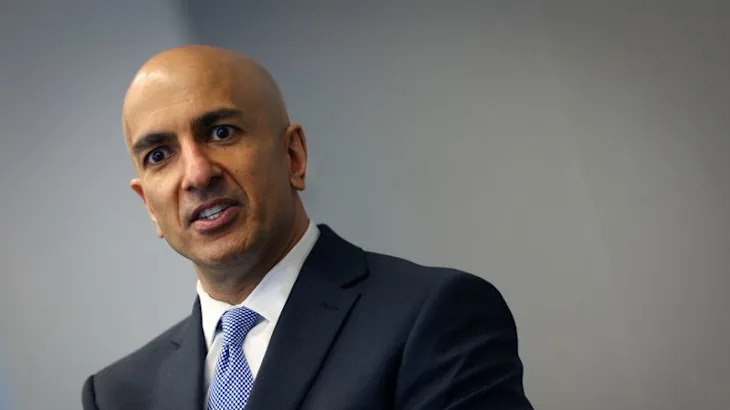By Howard Schneider
WASHINGTON (Reuters) - The Federal Reserve should intervene in markets only reluctantly and in a true emergency, Minneapolis Fed President Neel Kashkari said on Friday in the most explicit comments yet from a Fed official about responding to the volatility that has torn across markets in response to President Donald Trump's tariff barrage.
"The Fed or Treasury stepping in should be done reluctantly, should be done when it is only truly needed," said Kashkari, who as a Treasury official during the 2007-09 financial crisis led the Troubled Asset Relief Program.
"I think we should be very cautious about taking moves that could demonstrate a weakening, which I don't think is there, to the Fed's commitment to getting inflation down."
"If there's a dislocation - I'm not forecasting this, but if there were a dislocation - we have the ability to smooth out that dislocation," Kashkari said. "But I'm not seeing big dislocations yet. I'm seeing some stresses, but markets seem to be adjusting."
Since Trump's tariff announcements last week, U.S. stock and Treasury prices have plunged at the same time - a potentially worrisome sign of investors turning from the U.S. more broadly.
A pause on some of Trump's planned import taxes has done little to reverse the shock.
The yield on the benchmark 10-year Treasury bond has risen a hefty 0.6 percentage points over the past week, and the S&P 500 index has fallen about 14% since a peak in February, before the scope of Trump's tariff plans became clear.
More typically, U.S. Treasury yields fall in times of stress as investors seek a safe place to park cash.
In a wide-ranging interview on CNBC, Kashkari said investors might be turning away from the U.S., whose deficit in goods trade Trump is trying to shrink.
"There's a lot of complexity," he said, noting that the dollar had also been weakening.
"Normally when you see big tariff increases, I would have expected the dollar to go up. The fact that the dollar is going down at the same time, I think, lends some more credibility to the story of investor preferences shifting."
KASHKARI SAYS TRADE DEFICIT COMES WITH INVESTMENT IN U.S.
Kashkari said investors around the world had long viewed the U.S. as the best place to invest, "and if that's true, we will have a trade deficit".
The views of Kashkari, a Treasury official in the Bush administration and one-time Republican gubernatorial candidate in California, challenge Trump's arguments that the deficit is evidence that the U.S. is being cheated.
"If the trade deficit is going to go down, it could be that investors are saying, 'Okay, America no longer is the most attractive place in the world to invest,' and then you would expect to see bond yields go up."
Yields could also rise if inflation expectations break loose and bond investors demand more compensation, Kashkari added.
Trading in inflation-protected securities and other measures of long-term inflation have not shown that happening yet, but Kashkari said the Fed was determined to make sure it does not.
He cited this as another argument for not intervening in markets until it is clear that inflation, including the price hikes on the way from tariffs, is controlled.
If markets are shifting in ways that mean higher long-term interest rates in the U.S. - a shift with implications for the U.S. federal deficit, home mortgage rates and other costs of credit - Kashkari said the Fed can only smooth the transition, not influence where long-term rates ultimately land.
"The Fed cannot change the ultimate destination of where the economy is going to settle. All we can do is keep inflation in check and try to keep dislocations from disrupting that transition period," he said.
"Where yields end up settling, that depends on trade policy and fiscal policy and U.S. economic competitiveness."


